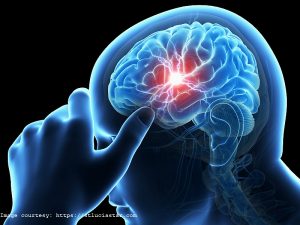- Home
- Editorial
- News
- Practice Guidelines
- Anesthesiology Guidelines
- Cancer Guidelines
- Cardiac Sciences Guidelines
- Critical Care Guidelines
- Dentistry Guidelines
- Dermatology Guidelines
- Diabetes and Endo Guidelines
- Diagnostics Guidelines
- ENT Guidelines
- Featured Practice Guidelines
- Gastroenterology Guidelines
- Geriatrics Guidelines
- Medicine Guidelines
- Nephrology Guidelines
- Neurosciences Guidelines
- Obs and Gynae Guidelines
- Ophthalmology Guidelines
- Orthopaedics Guidelines
- Paediatrics Guidelines
- Psychiatry Guidelines
- Pulmonology Guidelines
- Radiology Guidelines
- Surgery Guidelines
- Urology Guidelines
Simple test may predict prognosis of stroke

According to a study published in the Journal Neurology, a simple test taken within a week of a stroke may help predict how well people will have recovered up to three years later,
The researchers enrolled 274 people in Germany and France who had a stroke and they were subjected to the test, called the Montreal Cognitive Assessment, within a week of the stroke. The participants were divided into two groups: those with no problems with thinking and memory skills and those with cognitive impairment. They were tested for their thinking and memory skills, motor functioning and ability to complete daily living tasks six months later and then at one and three years after the stroke.
It was found that those who had thinking problems within one week of the stroke were seven times more likely to die during the three years of the study than those who did not have thinking problems. The survival rate for those with thinking problems after three years was 83 per cent, while the rate was 97 per cent for those with no thinking problems initially.
Those with cognitive impairment were more than twice as likely to have problems completing their daily activities such as bathing and dressing, with 42 per cent having problems compared to 13 per cent three years after the stroke.
Those with cognitive impairment were five times more likely to continue having thinking problems three years after the stroke than the other group.
Those with thinking problems on the first test were also five times more likely to have problems with their motor skills than those who did not have thinking problems early on. At three years after the stroke, 29 per cent of those with thinking problems on the first test had problems with their motor skills, compared to 5 per cent of those who did not have thinking problems early on.
The researchers noted that the test helped predict outcomes even when other factors such as the severity of the stroke were taken into account.
"We found that this test, which takes less than 10 minutes, can help predict whether people will have impaired thinking skills, problems that keep them from performing daily tasks such as bathing and dressing and even whether they will be more likely to die," said study author Martin Dichgans, MD, of Ludwig-Maximilians University in Munich, Germany. "This test should be used to screen people with stroke and to counsel them and their families about long-term prognosis and also to identify those who would most benefit from interventions that could improve their outcomes."

Disclaimer: This site is primarily intended for healthcare professionals. Any content/information on this website does not replace the advice of medical and/or health professionals and should not be construed as medical/diagnostic advice/endorsement or prescription. Use of this site is subject to our terms of use, privacy policy, advertisement policy. © 2020 Minerva Medical Treatment Pvt Ltd